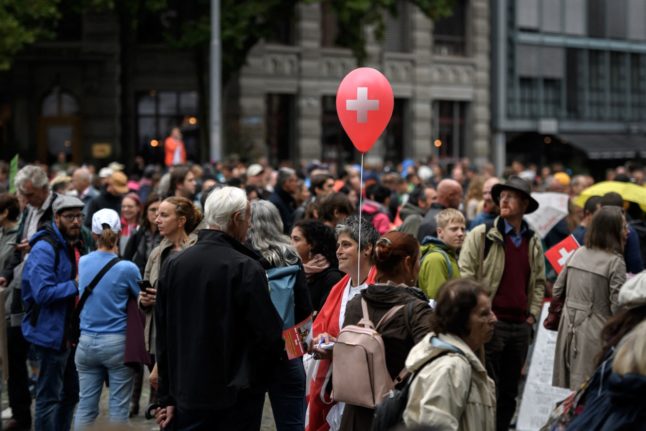May Day, which falls on a Wednesday this year, is marked across the world.
In many places the day, which is also known as International Workers’ Day or Labour Day (Tag der Arbeit, Fête du travail and Festa del lavoro in German, French and Italian), is a public holiday.
In Switzerland, however, there are differences depending on where you live.
People in the following cantons normally have the full day off on May 1st: Zurich, Basel–City, Basel–Country, Jura, Neuchâtel, Schaffhausen, Thurgau and Ticino.
In Aargau and Solothurn, people are usually given a half day off (from noon).
In some cantons, such as Fribourg and St. Gallen, a half day is usually given to cantonal workers.
Employees in other cantons do not get a public holiday on May 1st, unless their boss gives workers the time off.
Why isn’t May 1st a holiday everywhere in Switzerland?
The simple answer is that under the country’s federalist system, individual cantons are free to set their own public holidays.
The only exceptions are Swiss National Day on August 1st, Ascension, as well as Christmas and New Year’s Day, all of which are national holiday at federal level.
There is no one official explanation as to why May 1st is a public holiday in some cantons but not in others.
One theory is that it is most widespread in places where unions are strongest.
How is May 1st marked in Switzerland?
Since it is a day devoted to workers’ rights, rallies are organised by unions and other organisations throughout the country.
Demonstrators typically demand higher pay, equal rights, and other labour-related concerns.
The biggest demonstration takes place in Zurich, Switzerland’s largest city.
Each year, the Zurich May Day Committee focuses on one issue; this year’s slogan is ‘Capitalism makes you sick.’
Similar events will take place throughout the country (though at a smaller scale), even in places where May 1st is not an official holiday.



 Please whitelist us to continue reading.
Please whitelist us to continue reading.
Member comments